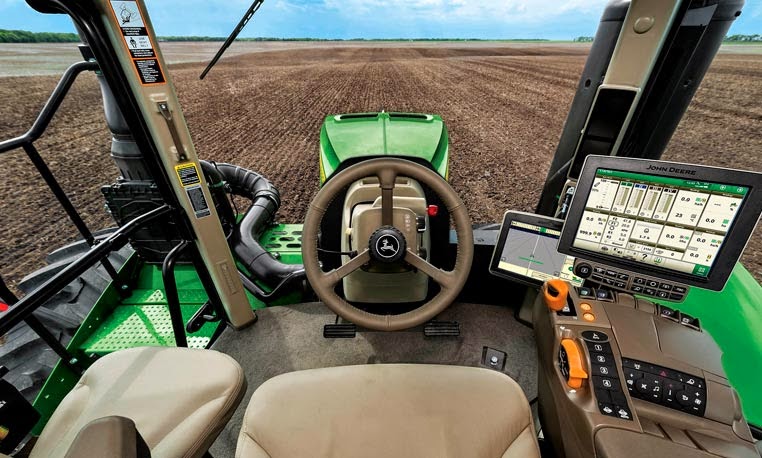
Modern tractors, combines, forage harvesters, etc. all have complex computer software that controls many components. Manufacturers like John Deere design this software and, to protect others from stealing this technology, John Deere registers the software with the US Copyright Office to obtain federal copyright protection. A copyright generally expires after 70 years.
John Deere and other technology providers add “Technology Protection Measures” (TPMs) to software that prevent competitors, hackers, or other persons from accessing their code, altering it, and putting it back into the stream of commerce.
The Copyright Office recently published notice that it was considering allowing circumvention of TPMs for vehicles, including agricultural machinery. This would mean that anyone, with the permission of the owner, could access a tractor’s software and reprogram it. The Copyright Office’s rationale for this change is that an owner of a tractor should be allowed to access, change, or repair the vehicle’s software without the original manufacturer’s approval. John Deere and others disagree.
Why? According to John Deere, the software on modern agricultural equipment is crucial to its operation. Emissions, safety, performance, and reliability are all dependent on properly functioning software. Fear of nefarious hackers is also part of Deere’s concern. Imagine a hacker taking control of a 500 horsepower tractor remotely and driving it into a crowd. Less emphasized, but perhaps more important to John Deere, TPM’s prevent competitors from easily accessing and copying Deere’s proprietary operating software.

A John Deere cab is a high tech place to work.
WIRED exaggerates to make its point. John Deere is not suggesting it owns a farmer’s tractor. But Deere is claiming it owns the rights to the software. John Deere states: “A vehicle owner does not acquire copyrights for software in the vehicle, and cannot properly be considered an ‘owner’ of the vehicle software.” John Deere points out that there are many parts on tractor that can be repaired without accessing the software, so not every machine repair would require a John Deere technician.
Compare this to my cellphone. I own my iPhone, but I only license the operating system (iOS) from Apple. When something breaks, I have to go to an authorized Apple technician to get it fixed. John Deere wants the same protection for software on its tractors.
I don’t fault John Deere for protecting its intellectual property. Deere spends millions engineering software, just like it does diesel engines. It should be allowed to protect its investment.
I think the real issue here is whether or not someone who buys a car, tractor, truck, etc. should be allowed to modify the vehicle’s software just like they would the paint, wheels, or trim. We’ve been having that debate with smart phone manufacturers. Now its time to debate the same issue in the farming community.
What do you think? Should ag equipment manufacturers be allowed to sell you a tractor but only license you the tractor’s software?
Source: Janzenaglaw













